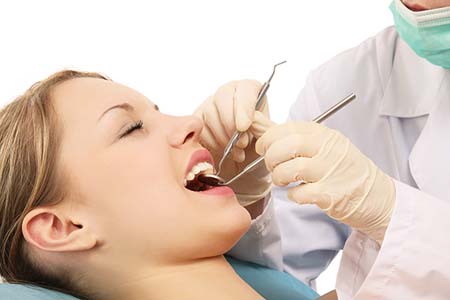Get Questions Answered About Side Effects From a Sedation Dentist
 As a sedation dentist, we are pleased to make it possible for people to receive the dental care that they need. Given that millions of people suffer from mild to severe dental anxiety, we know that a lot of people skip out on important dental care due to their own fears. This can only exasperate the problem and very often causes dental issues to become worse. By offering sedation, we can eliminate these anxieties so that you can receive the care that you need.
As a sedation dentist, we are pleased to make it possible for people to receive the dental care that they need. Given that millions of people suffer from mild to severe dental anxiety, we know that a lot of people skip out on important dental care due to their own fears. This can only exasperate the problem and very often causes dental issues to become worse. By offering sedation, we can eliminate these anxieties so that you can receive the care that you need.
During the initial exam and consultation, we will determine what your oral health challenges are and discuss the best way of treating them. We will also discuss your options for sedation. There are several ways to help you to relax and discussing them in detail allows you to make an informed decision as to how to proceed. One of the questions we are regularly asked during these consultations is whether or not there are any real side effects associated with sedation.
Whenever you have dental work done or any type of procedure, you need to let your doctor know if you have any other health issues. We want to know, for example, if you are a diabetic and if you have had a recent diabetic episode. This can make it difficult to recover from any type of procedure and may influence our recommendation for when you should receive treatment. As a sedation dentist, we also need to know about any medications that you are taking before determining which type of sedation to give you.
You can expect to feel tired after experiencing sedation dentistry. If you have only received nitrous oxide, this may be minor, and many people can bounce back immediately. If, however, you have been put to sleep or had deeper sedation, you will probably feel very tired afterwards. Since being drowsy can be dangerous when driving, we recommend that you have someone else drive you home. The risk of getting into a car wreck is high if you are drowsy so don't take the chance. When you do get home, we recommend that you rest for twelve hours. This can be sleeping, watching movies, reading a book, etc. Just take it easy and rest so that you can recover faster and so that your drowsiness wears away.
As a sedation dentist, we have also found that our patients tend to be extraordinarily thirsty after sedation. This is an easy fix, simply buy a nice water bottle with a straw and drink plenty of water that day and the next. Staying hydrated is good for you anyway so drinking water can be important, regardless of what you have going on.
If you have more questions about sedation and how it can be used to improve your dental experience, we invite you to schedule a consultation with our office. We will be happy to answer any questions that you have.
Related Posts
Sedation dentistry is another name for sleep dentistry. It helps keep you calm during dental procedures. Sedation dentistry can relax you as your dentist works on your gums and teeth. If you want to know more about sleep dentistry, here are some FAQs and the answers for each.Twilight sedation and conscious sedation are other terms…
A sedation dentist can use different sedation techniques to relieve pain during a dental procedure.If you struggle with dental anxiety, then our sedation dentistry may be able to help. With sedation dentistry, we can help you relax and not feel any sensation while we work on your teeth. Our goal is to help ensure you…
Oral sedation dentistry makes visits to the dentist easier and less stressful. Sedation dentistry is the no-stress, safe and comfortable dental experience everyone deserves. If you have any fear of the dental chair or have time restrictions, oral sedation is worth a try.At our practice, a specially-trained professional will administer the oral sedation. Also known…
Are you looking for ways to ease your dental anxiety? If so, consider different sedation options. According to the American Dental Association, the type of procedure, your overall health, your history of allergies, and your anxiety level are all considered when determining which approach is best for your particular case. Ready to learn more about…
 As a
As a